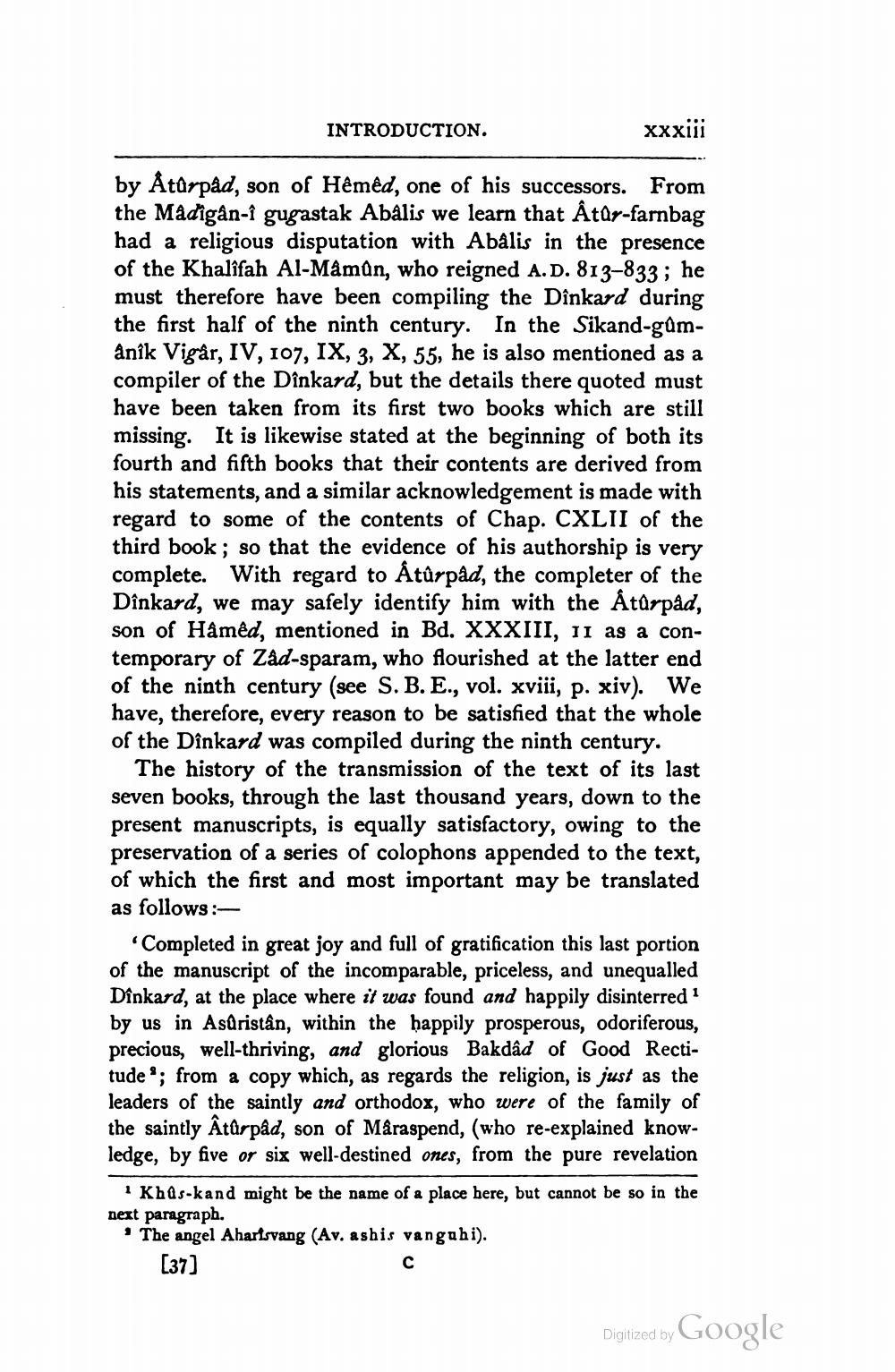________________
INTRODUCTION.
xxxiii
From
by Åturpâd, son of Hêmêd, one of his successors. the Madigan-î gugastak Abâlis we learn that Âtûr-farnbag had a religious disputation with Abâlis in the presence of the Khalifah Al-Mâmûn, who reigned A. D. 813-833; he must therefore have been compiling the Dînkard during the first half of the ninth century. In the Sikand-gumânîk Vigår, IV, 107, IX, 3, X, 55, he is also mentioned as a compiler of the Dînkard, but the details there quoted must have been taken from its first two books which are still missing. It is likewise stated at the beginning of both its fourth and fifth books that their contents are derived from his statements, and a similar acknowledgement is made with regard to some of the contents of Chap. CXLII of the third book; so that the evidence of his authorship is very complete. With regard to Âtûrpâd, the completer of the Dînkard, we may safely identify him with the Âturpâd, son of Hâmêd, mentioned in Bd. XXXIII, 11 as a contemporary of Zâd-sparam, who flourished at the latter end of the ninth century (see S. B. E., vol. xviii, p. xiv). We have, therefore, every reason to be satisfied that the whole of the Dinkard was compiled during the ninth century.
The history of the transmission of the text of its last seven books, through the last thousand years, down to the present manuscripts, is equally satisfactory, owing to the preservation of a series of colophons appended to the text, of which the first and most important may be translated as follows:
'Completed in great joy and full of gratification this last portion of the manuscript of the incomparable, priceless, and unequalled Dînkard, at the place where it was found and happily disinterred1 by us in Asûristân, within the happily prosperous, odoriferous, precious, well-thriving, and glorious Bakdâd of Good Rectitude; from a copy which, as regards the religion, is just as the leaders of the saintly and orthodox, who were of the family of the saintly Âturpâd, son of Mâraspend, (who re-explained knowledge, by five or six well-destined ones, from the pure revelation
1 Khus-kand might be the name of a place here, but cannot be so in the next paragraph.
'The angel Ahartsvang (Av. ashis vanguhi).
[37]
с
Digitized by
Google




